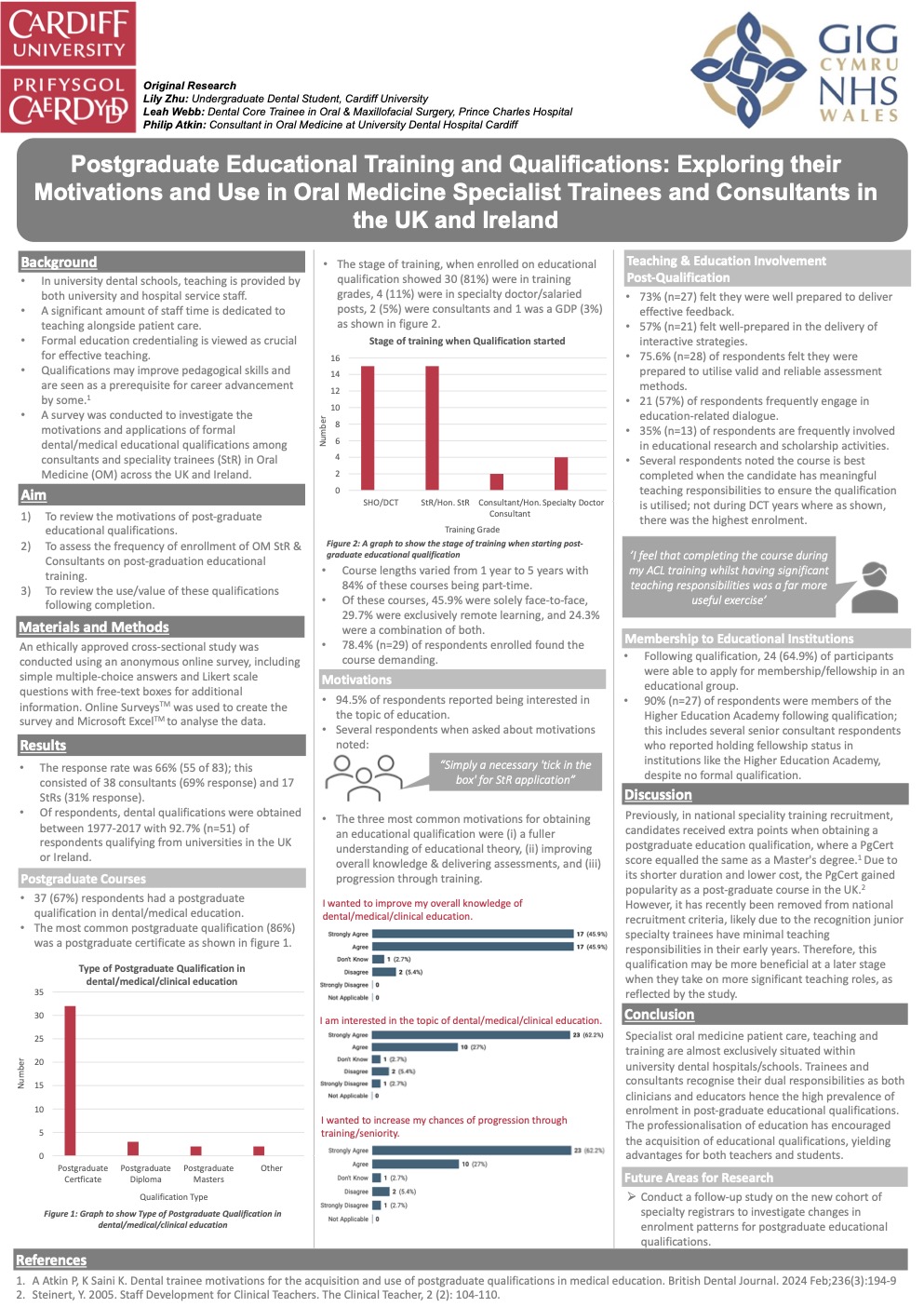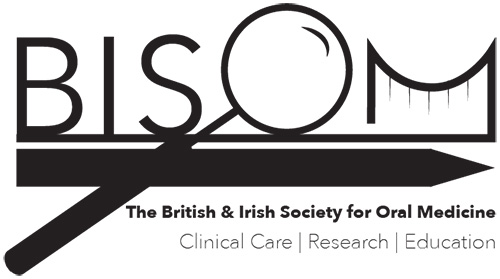Postgraduate Educational Training and Qualifications: Exploring their Motivations and Use in Oral Medicine Specialist Trainees and Consultants in the UK and IrelandPostgraduate Educational Training and Qualifications: Exploring their Motivations and Use in Oral Medicine Specialist Trainees and Consultants in the UK and Ireland
OR5
Leah Webb
Lily Zhu, Leah Webb, Philip Atkin
Background:
In university dental schools, students receive teaching from both university staff and hospital service staff. Whilst there primarily for patient care, a substantial portion of staff time is committed to teaching. Therefore, formal education credentialling could be seen as an important foundation for effective teaching. While qualifications may enhance pedagogical skills, some perceive them as a procedural requirement for career progression. To provide further insight, we conducted a survey exploring the motivations and uses of formal dental/medical educational qualifications in consultants and speciality trainees (StR) in OM across the UK and Ireland.
Methods
An ethically-approved cross-sectional study was conducted using an anonymous online survey, including simple multiple-choice answers and Likert scale questions with free-text boxes for additional information. Online SurveysTM was used to create the survey and Microsoft ExcelTM to analyse the data.
Results:
The response rate was 66% (55 of 83). 38 consultants (69% response) and 17 StRs (61% response) replied. 37 (67%) respondents had a postgraduate qualification in dental/medical education, with a postgraduate certificate being the most common (86%). When the educational qualification was awarded, 31 (84%) were in training grades, 4 (11%) were in speciality doctor/salaried posts and 2 (5%) were consultants. The three most common motivations for obtaining an educational qualification were (i) a fuller understanding of educational theory, (ii) improving overall knowledge and delivering assessments, and (iii) progression through training.
Discussion
Specialist oral medicine patient care, teaching and training is almost exclusively situated within university dental hospitals/schools. Trainees and consultants recognise their dual responsibilities as both clinicians and educators. The professionalisation of education has encouraged the acquisition of educational qualifications, yielding advantages for both teachers and students. Many senior consultants were appointed before the surge in availability of postgraduate educational qualifications, but nonetheless are fellows of recognised benchmarking institutions such as Higher Education Academy.

